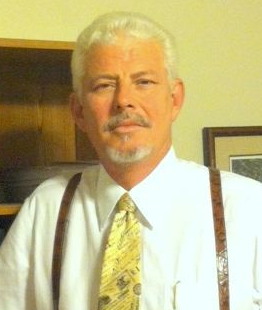"Amicus curiae" is the Latin term. "Amicus" means "a friend." English cognates include"amicable" and "amity." "Curiae" means roughly "of a court." English cognates include "curator," a person who judges [as in a court] which items should be in an art gallery or museum. Much has been made in recent news about the "Curia" of the leader of the Roman Catholic Church, the Pope-- the Curia is his court as a king has a court.
More than one friend are "amici." Ordinarily the only people who can participate in a lawsuit are people that either want a court to act in some way or people who oppose a court's action in some way. In a suit over money, the only people who can ordinarily participate are the people who have submitted to the court's jurisdiction who either desire to get money from one or more other parties or who wish to keep their money from the other party.
Generally, particularly in appellate disputes, a court can give permission for one or more additional parties to file briefs in a case or even present oral argument.
Imagine that a dispute about a small amount of money depends on an interpretation of the United States Constitution. The plaintiff: Gimpel the Fool
represented by
Here is the defendant, Gervais Brooke-Hamster
represented by R.L Gumby, Esq., attorney at law.
Now, generally, when appellate courts decide cases, they not only rule on the dispute, but they make a rule to be followed that will be applied in all cases before them thereafter. Appellate justices are hardly ever experts on the distant, long-term effects of their rule-making-- especially as to specific industries, intellectual property or taxes. The court needs help to decide the case rightly, and, more importantly, to make good rules that won't pointlessly screw up the economy.
Shyster and Gumby, though, are clearly not the people for the job. Commonly lobbyists keep track of the cases appearing before the high courts that could affect their interests, and advise their clients to petition the court for permission to act as amici curiae, and hire first-rate lawyers to add briefs to help explain the context of the dispute. There may even be rare instances in which one or more high court justice might ask a buddy or a well-recognized expert in a field to act as an amicus.
Criticism of amici and their briefs:
- Amici often have vested interests and distort the litigation process. Trade associations and other businesses can fairly well count on their interests being considered in litigation, the public not so much.
- In states like Texas in which justices are elected, trade associations and other businesses finance the campaigns of candidates who will likely support their interests once the candidates rise to the (higher) bench. Sometimes it seems to me that in such cases, amicus briefs just add insult to injury. This is not so much a problem in courts in which the judges do not face the voters later. Those judges need not fear serious harm for ruling against vested interests. As segregation died, white southerners wanted to impeach Earl Warren. Many federal judges ruled in favor of school integration, improving the conditions of prisons, even requiring that criminal convictions be overturned because peace officers just plainly ignored the civil rights of poor people, racial minorities, and nonconformists.
- Sometimes one or more friends of the court will be closely allied to one of the parties and all the folks on one side of a matter, and the party desperately desires to cover more material in its brief than the word count allows. That party and one or more amici will connive so as to spread an overly long argument over all their briefs to beat the page count.






